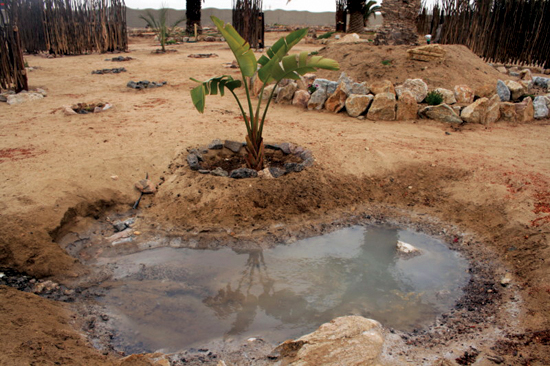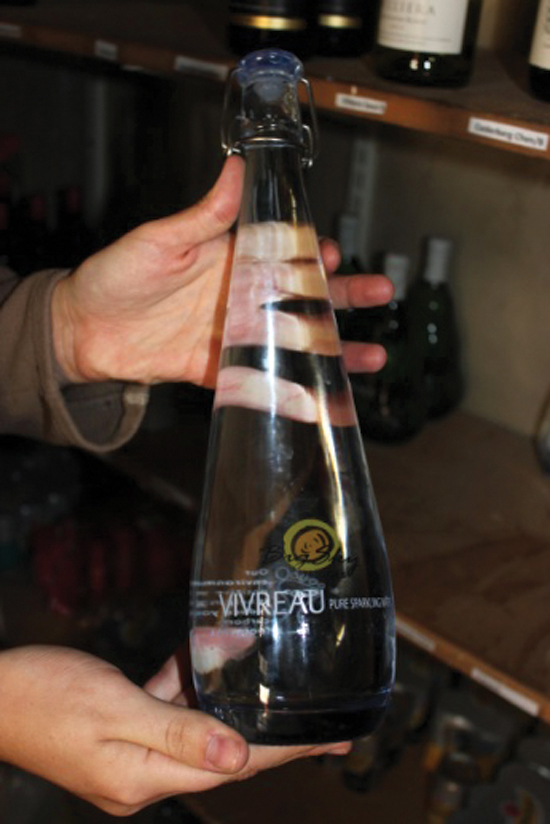Conservation | Lichen Fields Protection Project
May 22, 2015Into the Okavango | First Ever Survey of Cuito’s Upper Catchment
May 27, 2015Setting the eco-standards for tourism in Namibia
Eco Awards Namibia
By Hazel Milne
Eco Awards Namibia and Nedbank’s Go Green Fund share many of the same goals. Both are designed to make consumers more aware of the natural world and our impact on the environment. And, after a decade and more of progress, they are both thriving.
Since its inception in 2004, Eco Awards has benefitted from steadfast support from the Go Green Fund. Eco Awards Namibia promotes sustainable tourism practices, defined by the World Commission on Environment and Development in 1987, as “development that meets the needs of the present without compromising the ability of future generations to meet their needs and aspirations”
Eco Awards Namibia is the only existing certification scheme that rates the sustainability of tourism establishments in Namibia. Candidates are assessed according to criteria such as water and waste water management, waste management including recycling practices, energy management, ecological approach and sustainable construction and landscaping practices, staff development programmes and involvement in the development of local communities.
As in the star-grading system used for the hospitality sector, enterprises qualifying for an eco award are rewarded with between one and five desert flowers, thus recognising responsible tourism in Namibia.
“The sustainability of tourism destinations is a global concern. Unless there is local awareness of this issue, and visible rewards for responsible and sustainable tourism, there is a real danger that tourism can impact negatively on the destination – both on the natural environment and on the human population. Evidence of these impacts has been experienced in destinations such as Thailand, Kenya and many others,” said Hazel Milne, programme coordinator since 2010.
Ten years ago there were fewer than 10 accommodation establishments in Namibia that could boast the first yellow flowers. Since assessments began in 2006, 50 establishments have been certified.
In 2014, Eco Awards Namibia expanded its programme by developing a new set of criteria, based on the Global Criteria for Certifying Sustainable Tourism (GSTC). The main criteria subsections are sustainable management, social and economic benefits, cultural heritage, and environmental benefits. An invitation to participate in the pilot phase of this project was sent out via TASA (the Tour Operator Association of Namibia) and participants are being selected on a ‘first come, first serve’ basis – measured in terms of the return of a completed self assessment.
Pack Safari was the first operator to complete its self assessment, and thus became the first Namibian tour operator to be recognised by Eco Awards Namibia for their efforts to ensure sustainability in Namibian tourism.
New developments in 2014 also see Eco Awards Namibia working more closely with its African partners to recognize those businesses who are committed to practicing sustainable tourism.
Following a meeting with some of the major stakeholders in the African Alliance for Sustainable Tourism Certification, it became clear that there are many benefits to align the criteria of our standards to the GSTC. The most outstanding benefit would be market–related exposure for our members.
The following African Certification Programs thus entered into a Mutual Recognition Agreement: Eco Awards Namibia, Fair Trade Tourism (South Africa) and Responsible Tourism Tanzania.
The initial comparative steps revealed that Eco Awards Namibia’s criteria and standard are (in certain environmental sections) already exceeding the GSTC requirements. However, the Eco Awards criteria sections dealing with social factors, such as human rights, gender issues, local communities’ involvement, general work place conditions, safety at work, healthy work practices, employment principles, labor contracts, child protection, fall short of the GSTC requirements.
It appears that those establishments that have already been assessed by Eco Awards Namibia would easily attain the additional points on the GSTC system and would be in a position to benefit from this criteria update. These benefits include recognition by TourCert, a body assessing travel agents in Europe. TourCert, along with Fair Trade Tourism (who is expanding into certifying holidays) are potential global marketing partners for Eco Awards Namibia and its members.
Ten years since its inception, Eco Awards Namibia continues to make steady progress in Namibia and beyond.







